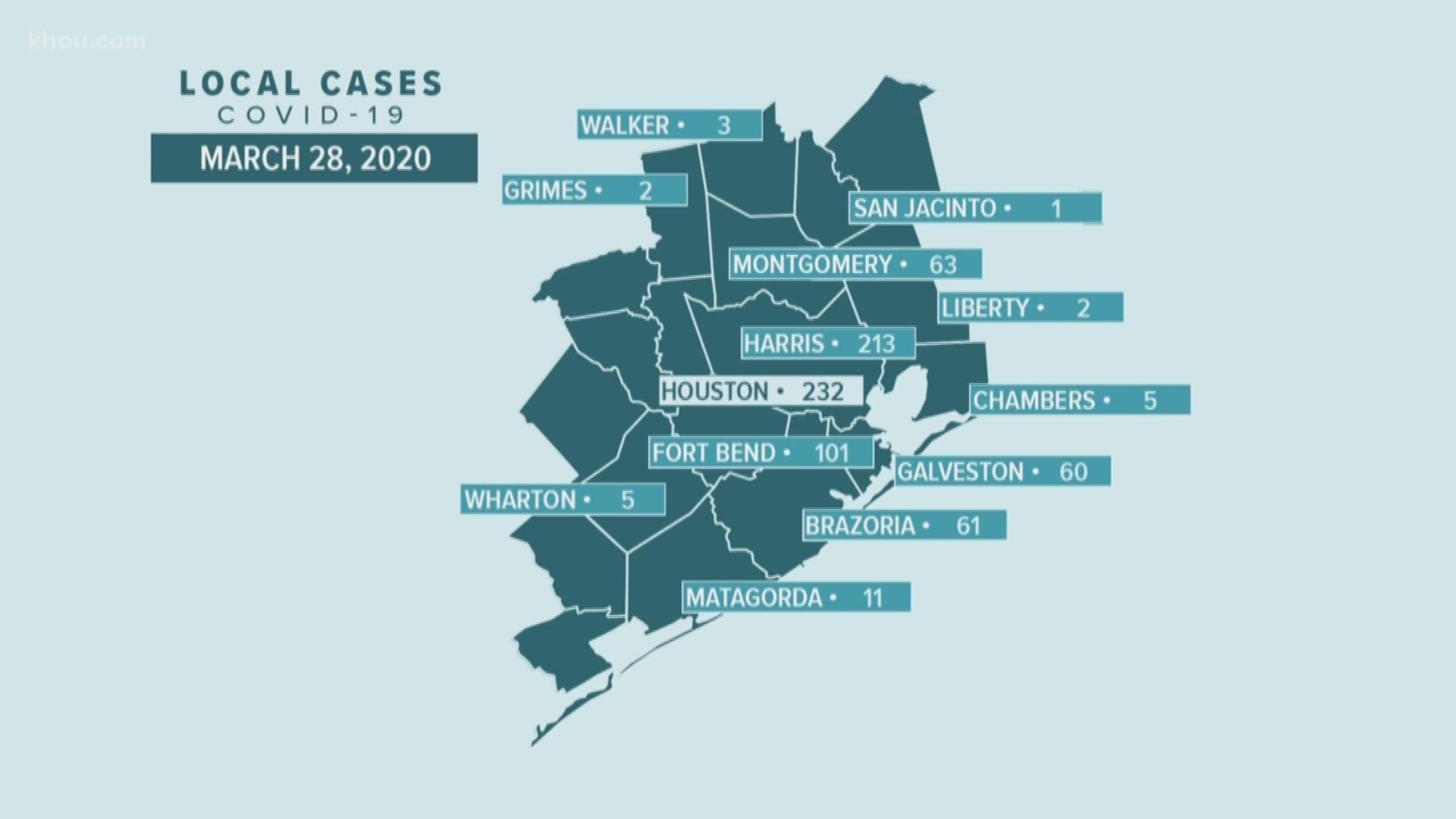HOUSTON — A Harris County Jail inmate has tested positive for coronavirus, the sheriff's office announced Sunday.
The 39-year-old inmate was booked into the jail on March 17 after being arrested for a parole violation. He was placed into quarantine on March 26 after a "standard health assessment detected an elevated temperature and a high pulse rate," according to a statement issued by the sheriff's office. He was then transferred to the medical unit at the 1200 Baker Street jail facility.
30 Harris County Jail inmates show symptoms of coronavirus
The sheriff's office on Sunday also said 30 inmates at the Harris County Jail also show symptoms consistent with the coronavirus. About 500 inmates were potentially exposed to COVID-19, the sheriff's office said, but do not have symptoms. Those inmates are currently being held in quarantine for observation.
So far, five inmates who have been tested for coronavirus have had their tests come back negative.
“The Harris County Sheriff’s Office medical staff and detention staff are taking every possible precaution to manage the spread of COVID- 19 among our nearly 8,000 inmates,” Sheriff Ed Gonzalez said in the statement. “Despite their heroic efforts, we know this insidious virus is nearly impossible to contain in a jail environment. I am in awe of the efforts of our team, and I remain especially concerned for the safety of those who show up for their shifts each day, knowing the risk to themselves and their families.”
Coronavirus symptoms
The symptoms of coronavirus can be similar to the flu or a bad cold. Symptoms include a fever, cough and shortness of breath, according to the Centers for Disease Control. Some patients also have nausea, body aches, headaches and stomach issues. Losing your sense of taste and/or smell can also be an early warning sign.
Most healthy people will have mild symptoms. A study of more than 72,000 patients by the Centers for Disease Control in China showed 80 percent of the cases there were mild.
But infections can cause pneumonia, severe acute respiratory syndrome, kidney failure and even death, according to the World Health Organization. Older people with underlying health conditions are most at risk for becoming seriously ill. However, U.S. experts are seeing a significant number of younger people being hospitalized, including some in ICU.
The CDC believes symptoms may appear anywhere from two to 14 days after being exposed.
Human coronaviruses are usually spread through...
- The air by coughing or sneezing
- Close personal contact, such as touching or shaking hands
- Touching an object or surface with the virus on it, then touching your mouth, nose or eyes before washing your hands.
Help stop the spread of coronavirus
- Stay home when you are sick.
- Eat and sleep separately from your family members
- Use different utensils and dishes
- Cover your cough or sneeze with your arm, not your hand.
- If you use a tissue, throw it in the trash.
- Follow social distancing
Lower your risk
- Wash your hands often with soap and water for at least 20 seconds. If soap and water are not available, use an alcohol-based hand sanitizer.
- Avoid touching your eyes, nose, and mouth with unwashed hands.
- Avoid close contact with people who are sick.
- Clean and disinfect frequently touched objects and surfaces.
- If you are 60 or over and have an underlying health condition such as cardiovascular disease, diabetes or respiratory illnesses like asthma or COPD, the World Health Organization advises you to try to avoid crowds or places where you might interact with people who are sick.
Get complete coverage of the coronavirus by texting 'FACTS' to 713-526-1111.

